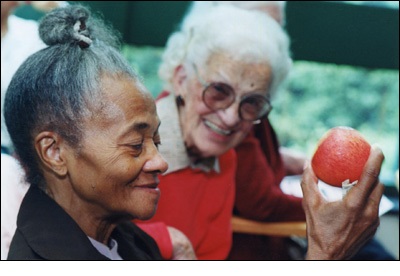
|
|

|
|
| April 19, 2024 |
|
Million-plus elderly Californians in poverty 
More than 300,000 elderly Californians are officially poor, as measured by the federal government, but their numbers triple to more than 1 million when the “hidden poor” are counted, according to a new study from UCLA’s Center for Health Policy Research.
National poverty guidelines say that for a single elderly adult living alone, the poverty line is $10,890 a year, but UCLA’s “elder index” puts it at $23,364 in California. Those “hidden poor” Californians over 65 tend to be Latino or black. Their greatest concentrations are found in rural counties with overall low income levels, topped by Imperial County, where more than 40 percent of the elderly are the hidden poor. The calculations of the hidden poor, unlike the official poverty rate, take into account the cost of living, particularly housing. And that means San Francisco, whose residents have relatively high incomes but extraordinarily high housing costs, has one of the state’s higher rates of elder poverty. The study is the latest example of how researchers are modifying the official poverty rate, which is based on factors unchanged in a half-century, to include more data on both the income and cost-of-living sides of the equation and thus develop more accurate measures of how people are faring. The Census Bureau, which calculates the official poverty rate, has also developed a “supplemental measure” that takes cost-of-living into account. While California’s official poverty rate is close to the national average, by the alternative it has the nation’s highest rate, 23.4 percent. The Public Policy Institute of California has used a similar methodology to calculate poverty rates for the state’s 58 counties. And now UCLA researchers are doing it for those over 65. By the official measure, 335,000 Californians over 65 are living in poverty, but by the alternate calculation, it is 1.1 million. The study said population groups with especially large proportions of the hidden poor include grandparents raising grandchildren, elderly with adult children living at home, and single elders. (The Sacramento Bee) Story Date: September 4, 2015
|